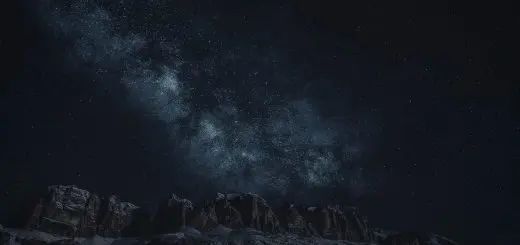The Cost of Building Your Own Tiny Home

Looking for more amazing products? Check out our online store and explore our collection here! Happy shopping!
Before diving in, please note: This post is for informational purposes only. If you’d like to know more about how we approach topics, feel free to check out our friendly Disclaimer Page.
Hey there, amazing readers! 
We’re committed to delivering quality posts, and your support (even just sticking around despite the ads) means everything to us. So, bear with us, and thanks for helping us keep the good vibes rolling. Now, on to the fun stuff!
TRANSLATE BUTTON AT THE END OF THE ARTICLE
Building your own tiny home is an exciting venture that promises a simplified lifestyle, reduced expenses, and the joy of customizing your living space.
However, as I learned from my own journey, there’s a lot to consider when it comes to costs.
From materials and labor to permits and utilities, understanding the financial aspect is crucial for making informed decisions.
Let’s dive into the various costs involved in building a tiny home and explore ways to manage your budget effectively.
Understanding the Tiny Home Movement
Before we break down the costs, let’s take a moment to understand what tiny living is all about.
The tiny home movement encourages minimalism, sustainability, and a simpler lifestyle.
Here’s why so many people, including myself, are drawn to it:
Affordability: Tiny homes generally cost less than traditional homes, making homeownership more accessible.
Sustainability: Smaller spaces mean using fewer resources, reducing your carbon footprint.
Freedom: A tiny home can offer mobility and flexibility, allowing you to travel or downsize your living situation.
Recognizing these benefits can help justify the costs involved in building your own tiny home.
Initial Costs: Land and Permits
The first costs you’ll encounter are related to land and permits.
Here’s a breakdown:
Land Purchase: Buying land can be a significant expense, ranging from a few thousand dollars in rural areas to much more in urban locations.
Zoning and Permits: Depending on where you live, you might need to secure building permits, which can cost anywhere from $500 to several thousand dollars.
Research local zoning laws, as they can affect where you can place your tiny home.
I discovered that understanding local regulations early on saved me from unexpected costs and headaches later.
Construction Materials
The materials you choose will largely determine your overall building costs.
Here’s a look at some common materials and their costs:
Foundation: You can build on a trailer for mobility or a concrete foundation.
A trailer can cost between $3,000 and $6,000, while concrete foundations can start around $5,000.
Framing: Wood framing is standard, costing around $4 to $6 per square foot, depending on the type of lumber.
Insulation: Quality insulation is crucial for energy efficiency, with costs ranging from $1,000 to $2,000 depending on the material.
Roofing and Siding: These materials can vary widely, but you might budget between $2,000 and $8,000 for roofing and siding combined.
Interior Finishes: Flooring, cabinetry, and fixtures can add up.
I found that budgeting around $5,000 to $15,000 for finishes is a good starting point.
Using reclaimed or second-hand materials can help reduce costs without sacrificing quality.
Labor Costs
Whether you plan to build your tiny home yourself or hire professionals will significantly impact your budget:
DIY Building: Taking the DIY route can save you a lot of money, but it requires time and effort.
If you have the skills, you can reduce labor costs to a minimum.
Hiring Contractors: If you decide to hire professionals, expect labor costs to range from $20 to $50 per hour, depending on the complexity of the project and your location.
When I built my tiny home, I did most of the work myself, but I hired a plumber and electrician for critical tasks, which helped me stay within budget while ensuring safety and compliance.
Utilities and Systems
Don’t forget to budget for essential utilities and systems, which can add significant costs to your project:
Plumbing: Depending on your setup, plumbing costs can vary.
Expect to spend anywhere from $1,000 to $3,000 for a basic system.
Electrical: Similar to plumbing, electrical systems can cost between $1,000 and $3,000.
Hiring a licensed electrician is essential for safety.
Heating and Cooling: Depending on your climate, heating and cooling systems can range from $1,000 to $5,000.
I chose a mini-split system, which is efficient and compact.
Water and Waste Management: Setting up water and waste management systems can cost an additional $1,000 to $3,000.
This includes tanks, pipes, and possible connection fees.
Investing in efficient systems can save you money in the long run.
Interior Furnishings and Decor
Once the structure is complete, it’s time to furnish and decorate your tiny home.
Here are some potential costs to consider:
Furniture: Look for space-saving furniture options, as they can range from $1,000 to $3,000.
Appliances: Choosing compact or multi-functional appliances can help keep costs down.
Budget around $1,500 to $3,000 for a small kitchen setup.
Decor: Personal touches like artwork, rugs, and plants can cost between $500 and $2,000, depending on your style and preferences.
I found that sourcing second-hand furniture and DIY decor projects helped keep my furnishing costs manageable.
Maintenance and Operating Costs
After your tiny home is built, it’s essential to consider ongoing costs:
Property Taxes: Depending on your location, property taxes can vary widely.
Make sure to budget for this expense, even if it’s significantly lower than a traditional home.
Utilities: Monthly utility costs (water, electricity, gas, internet) can range from $100 to $300, depending on usage and location.
Maintenance: Regular maintenance is crucial to keep your tiny home in good condition.
Budget for routine repairs and upkeep, which can vary based on your home’s systems and materials.
I like to set aside a little money each month for maintenance, which helps prevent financial surprises down the road.
Cost-Saving Tips for Building Your Tiny Home
Building a tiny home doesn’t have to break the bank.
Here are some cost-saving tips I learned along the way:
Research and Plan: Take the time to research materials, design ideas, and budget thoroughly.
A solid plan helps avoid costly mistakes.
Buy in Bulk: Purchasing materials in bulk can lead to significant savings.
Embrace Minimalism: Focus on essential items and declutter regularly.
This mindset can help you keep costs down and simplify your space.
Learn New Skills: Don’t shy away from learning skills like carpentry, plumbing, or electrical work.
It can save you money and give you a sense of pride in your home.
By implementing these tips, I was able to stick to my budget and create a home that felt like me.
Conclusion
The cost of building your own tiny home can vary widely based on factors like location, materials, and design choices.
While it’s essential to account for all expenses, understanding the benefits of tiny living can make the investment worthwhile.
By planning carefully and embracing creativity, you can build a comfortable and affordable home that reflects your lifestyle.
Are you considering building a tiny home?
Let’s share our experiences and tips!

The Enlightenment Journey is a remarkable collection of writings authored by a distinguished group of experts in the fields of spirituality, new age, and esoteric knowledge.
This anthology features a diverse assembly of well-experienced authors who bring their profound insights and credible perspectives to the forefront.
Each contributor possesses a wealth of knowledge and wisdom, making them authorities in their respective domains.
Together, they offer readers a transformative journey into the realms of spiritual growth, self-discovery, and esoteric enlightenment.
The Enlightenment Journey is a testament to the collective expertise of these luminaries, providing readers with a rich tapestry of ideas and information to illuminate their spiritual path.
Our Diverse Expertise
While our primary focus is on spirituality and esotericism, we are equally passionate about exploring a wide range of other topics and niches 

To ensure we provide the most accurate and valuable insights, we collaborate with trusted experts in their respective domains 
Our blog originally focused on spirituality and metaphysics, but we’ve since expanded to cover a wide range of niches. Don’t worry—we continue to publish a lot of articles on spirituality! Frequently visit our blog to explore our diverse content and stay tuned for more insightful reads.
Hey there, amazing reader! 
Check out our store here and take a peek at some of our featured products below! Thanks for being awesome!










